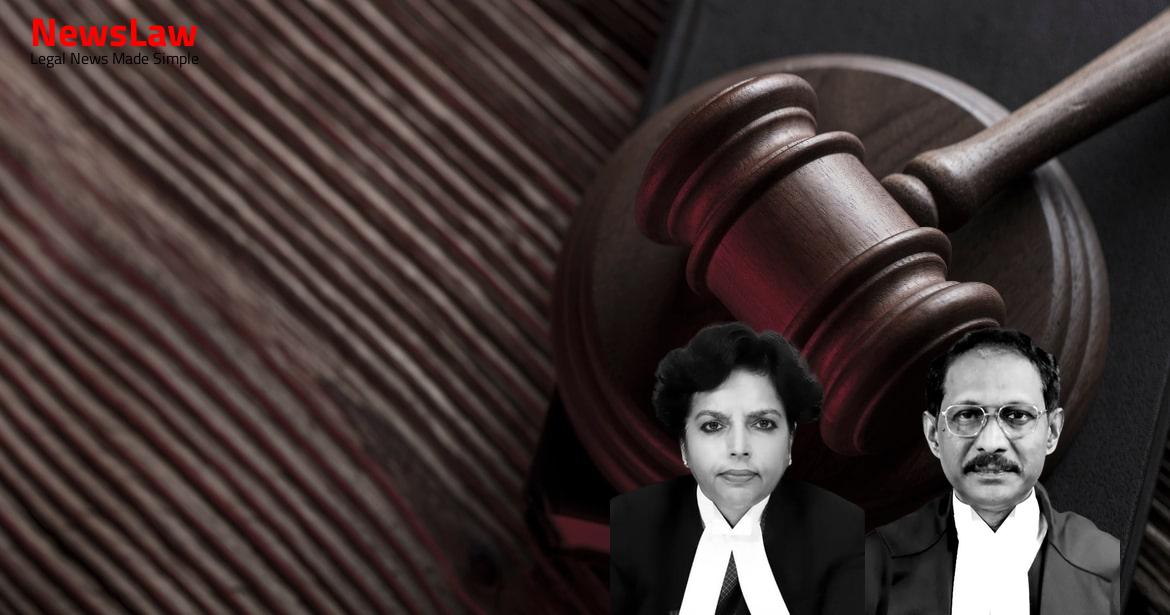Delve into the intricate legal analysis of the National Green Tribunal’s jurisdiction and its impact on the role of High Courts in environmental disputes. This case summary dissects the fine balance between specialized forums like the NGT and the traditional judicial bodies, emphasizing the importance of effective access to environmental justice. Stay informed on the evolving landscape of environmental law and the interplay between specialized tribunals and established courts.
Issue
- The issues addressed in this part of the judgment include whether an appeal mechanism should be provided to the High Courts from the decisions of the NGT.
- Another issue discussed is whether Section 3 of the NGT Act is ultra vires to the Constitution due to the alleged excessive delegation of powers.
- The third issue examined is whether the remedy of direct appeal to the Supreme Court from the decisions of the NGT under Section 22 of the NGT Act is also ultra vires to the Constitution.
Also Read: Legal Analysis of Assignment and Ratification in Property Law
Arguments
- The petitioners argue that the National Green Tribunal (NGT) does not enjoy the authority and autonomy available to judges in the High Courts, making it ineffective as a substitute for the High Courts in environmental disputes.
- The petitioners challenge the constitutionality and sustainability of setting up the NGT Bench at Bhopal instead of Jabalpur, where the principal seat of the Madhya Pradesh High Court is located.
- They argue that Section 14 read with Section 22 of the NGT Act should not exclude the writ jurisdiction of High Courts under Article 226/227 of the Constitution of India.
- The petitioners advocate for a NGT Bench in each state, based on the precedent of administrative tribunals needing to be equally effective as High Courts by having a permanent or circuit Bench at every place where there is a seat of the High Court.
- The petitioners stress the need for easy access to environmental justice without requiring litigants to travel to distant places for resolution.
- They assert that the establishment of the NGT was under the active supervision of the Supreme Court and after receiving the Court’s concurrence, the Benches were set up as per the Central Government’s recommendations.
- The petitioners believe that the NGT Act should not extinguish the jurisdiction and role of the High Courts under Article 226/227, and the establishment of NGT Benches should align with the location of High Court principal seats for effectiveness.
- The petitioners argue that the NGT was created as a specialized forum to handle environmental issues but should not undermine the High Courts’ jurisdiction and access to justice.
Also Read: Interpretation of Custody in Contempt of Court Case
Analysis
- The purpose of constituting the specialized court, the NGT, was to address the limited mandate and narrow scope of jurisdiction of previous forums like the NET and the National Environment Appellate Authority.
- The NGT is a specialized judicial body for the effective and expeditious disposal of cases related to environmental protection, conservation of forests, and natural resources, as well as enforcement of legal rights concerning the environment.
- The power of judicial review under Articles 226, 227, and 32 is considered part of the basic structure of the Indian Constitution and cannot be ousted by statutes like the NGT Act.
- The United Nations Conference on Environment and Development emphasized the importance of providing effective access to judicial and administrative proceedings in environmental matters.
- The right to a healthy environment is considered a part of the right to life under Article 21 of the Constitution.
- The power of judicial review vested in the High Courts under Article 226 and in the Supreme Court under Article 32 is integral to the Constitution’s basic structure.
- The issue of direct appeals to the Supreme Court or entertaining petitions under Article 136 to challenge tribunal decisions was considered in the R.K. Jain case.
- Justice Bhagwati emphasized the importance of judicial review in cases involving forums like the Central Administrative Tribunal.
- The Supreme Court being conceived as the first appellate forum and the implications of direct appeals to it were discussed in the Rojer Mathew case, where the Union Government was directed to study the effects and report to Parliament.
- The NGT was conferred special jurisdiction for the enforcement of environmental rights, with a preventive, ameliorative, and remedial role.
- The validity of the Tribunal Reforms Act is pending in the court, so its comparison with the NGT jurisdiction is not relevant.
- Appeal to the High Court is a statutory right, not inherent, and can be followed by an SLP to the Supreme Court under Article 136.
- Section 3 delegation to the Union Government for the establishment of the NGT was deemed necessary for effective disposal of environmental cases.
- The NGT’s establishment aligns with a constitutional mandate to enforce Article 21 in regard to the environment.
- The government supervises the NGT’s operationalization in accordance with the law and the Supreme Court’s guidance.
- The NGT’s unique jurisdiction for environmental rights enforcement distinguishes it from other tribunals.
- The low caseload in the NGT’s Bhopal Bench supports its central location to cater to multiple states efficiently.
- The NGT’s mandate to protect the environment aligns with international initiatives and judicial interpretations of the right to life.
- The NGT’s disposal rate surpasses pendency, indicating effective functioning and eliminating the need for additional benches in every state.
- Section 3 of the NGT Act is upheld as being in line with the Constitution of India.
- The National Green Tribunal does not take away the jurisdiction of the High Courts under Article 226 & 227.
- The issue of excessive delegation of power to the Central Government under Section 3 of the NGT Act is not determined in this case and is left for consideration in pending matters.
Also Read: Judicial Interpretation on Tribunal Powers and Back Wages
Decision
- The prayer for relocating the Bhopal NGT to Jabalpur is rejected.
- The Writ Petition is dismissed for lack of merit.
- The remedy of direct appeal to the Supreme Court under Section 22 of the NGT Act is constitutional.
- NGT benches can be located as per exigencies, not necessary to have one in every State.
Case Title: MP HIGH COURT ADV. BAR ASSOCN. Vs. UNION OF INDIA MINISTRY OF ENVIRONMENT AND FORESTS THROUGH THE SECRETARY (2022 INSC 586)
Case Number: W.P.(C) No.-000433-000433 / 2012



